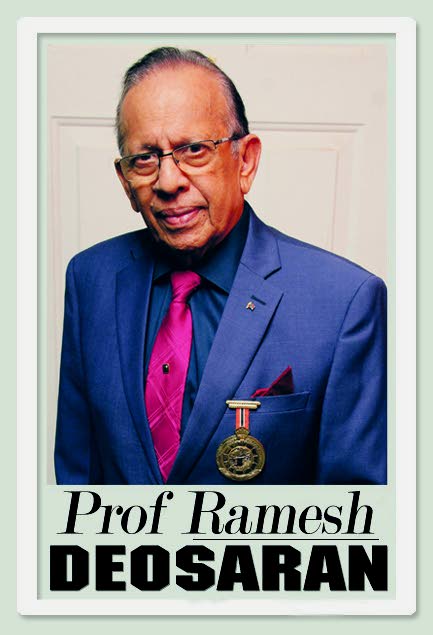Sports: a beacon on the hill

In a world very troubled by wars, political conflicts, civil uprisings and even starvation, the 2024 Paris Olympics appeared as an oasis of peace and a great lesson on how different countries can compete in peace.
The Olympics bring fraternity with peaceful competitors joined from countries not so friendly with one another – Israel, Ukraine, Qatar, China, the US, Russia (later banned), Pakistan, India, South Africa.
This civilised Olympian fraternity is also enriched by the multi-racial composition of the county’s teams. It is to the credit and courage of people from many parts of Africa that they compete and excel in Europe and England. Their excellence in basketball and athletics in America and the Olympics is legendary.
As of last Thursday, US, China and France were leading in medals.
There is, of course, a bigger story to this Olympics. For instance, the US gymnastic magician, Simone Biles, and Serbia’s world-class tennis player Novak Djokovic getting record gold in his final Olympic match.
We celebrate St Lucia’s Julien Alfred “fastest woman in the world” gold in the 100-metres final. She said, “God was with me.” So many victorious athletes look up to the sky in praise. St Lucia is still celebrating Alfred’s gold and 200 metres silver.
You know, when I saw the multi-racial hugging ups at the Olympics, I might have got carried away. I thought of how Barack Obama became a two-time US president, how Hindu Rishi Sunak became UK prime minister (though for a short time), how the Muslim Humza Yousef temporarily became Scotland’s first minister, Kamala Harris, now Democratic presidential nominee, and a few others who broke deep-rooted historical stereotypes.
Maybe something is happening, even if too slowly. Imagine the Muslim Nasser Hussain becoming England’s cricket captain, and the US cricket team (World Cup) having eight players of Indian descent. The multiracial composition of most IPL and CPL teams is also teaching us something. Sports can bring hope.
The 2024 Olympics, like those before, showed the world how to live and compete peacefully together. Traditional Italy, with black and white teams, Great Britain's team of white and black victors hugging up after victory all tell you what a common purpose could do.
The huge crowds seemed not to care about the race of their country’s winners. It was a victory for the nation. And as Jereem Richards said, he too planned a victory for our nation.
Germany’s mixed ethnic teams would have made Adolf Hitler cringe, even more than when he witnessed 23-year-old black American Jesse Owens winning four gold medals in the 1936 Olympics in Berlin, Germany.
Our own beloved Jereem “Dream” Richards felt hurt when he came fourth in the final 400, after first leading in the challenging lane no 9, and coming second in the semifinal. Our country supported him still. This was his fastest 400, a national record too (43.78).
“In good times, all praise to God. In bad times, all praise to God,” he gratefully acknowledged.
It hurts to work hard and fail. I worked very hard but failed a few times. So I know how that hurts. But my divine consolation was reflexively thanking God for the other times I succeeded.
I know how Jereem felt as he lay flat on the track, disappointed.
“So close, so close. I can’t be ungrateful but to be so close, oh my God.”
Maybe I am a bit sentimental here, but Jereem still remains our hero.
If anybody else should be disappointed, it should be Jamaica’s Keshane Thompson in the final 100-metres contest. With his right instep stretched over the finishing line, he, like onlookers, was convinced he had won. However, the officials used the rule book to declare the US's Noah Lyles the winner. Why? Because Lyles’ torso officially counted, not Thompson’s extended instep. Both Lyles and Thompson scored 9.79 seconds.
This was big grief for the Jamaican. Could there have been a tie? Athletics demand lightning speed – sometimes winnins by a hundredth or thousandth of a second.
The thing with competition is that if you wish to compete, then think about failing too. Competition in sports builds character. It brings both ecstasy and agony. There are more losers than winners in any race. Our Keshorn Walcott placed seventh (86.16) with the javelin on August 8. Pakistan’s Arshad Nadeen got gold (92.97), India’s Neeraj Chopra silver (89.45) and Grenada’s Anderson Peters bronze (88.54).
Walcott said, “That was a crazy race but God blessed me to reach this far.”
Hear this, too. India’s female champion wrestler, 29-year-old Vinesh Phogat, was disqualified in the final gold medal competition against US Sarah Hildedrandt. Why? She went over the 50-kilogramme weight limit by a few grammes. Facing protest, the officials said, “That’s the rules.” The night before, Phogat cut her hair, had a strict diet, etc, but still could not make it. She got dehydrated and went on to retire from wrestling.
Many of our budding athletes go on to attend US universities,where they get training and regular competition. With some private sector help, government should seek to establish several training academies here. And Sports and Community Development Minister Shamfa Cudjoe and Education Minister Dr Nyan Gadsby-Dolly should help make sports the shining beacon on the hill, bringing light to build hope and character.
Sports may not eradicate crime, but it will help reduce it as these youths strive for a place in society’s competitive mainstream. And let India build the cricket academy, too.

Comments
"Sports: a beacon on the hill"